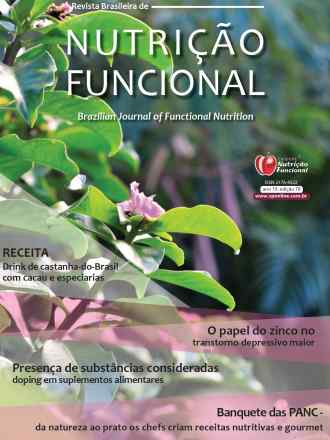O tratamento funcional de atletas em overtraining
Revista Brasileira De Nutrição Funcional
O tratamento funcional de atletas em overtraining
Autor Correspondente: D.Oliveira | [email protected]
Palavras-chave: atletas, educação fÃsica, treinamento
Resumos Cadastrados
Resumo Português:
Atualmente, a busca pelo máximo desempenho entre atletas de elite vem contribuindo para o aumento na prevalência
da sÃndrome de overtraining. Tal sÃndrome caracteriza-se pela redução no desempenho, acompanhada de diversos
outros sintomas de cunho fisiológico, imunológico, psicológico e bioquÃmico, como fadiga, depressão, infecção do trato
respiratório, distúrbios do sono, dores musculares, aumento do cortisol, entre outros. O diagnóstico do overtraining é muito
difÃcil, pois os sintomas se confundem com os do pré-overtraining e com os do treinamento normal, sendo necessário a
avaliação do desempenho do atleta no esporte através de teste especÃficos. Existem diversas hipóteses sobre a possÃvel
causa e mudanças fisiopatológicas do overtraining, como aumento de citocinas e desequilÃbrio neuroendócrino, redução
dos estoques de glicogênio, hipótese da fadiga central e diminuição da glutamina, porém nenhuma delas é conclusiva.
Com relação ao aporte nutricional, verificou-se uma importância na adequação do aporte proteico na dieta do atleta para
a prevenção de sintomas observados na sÃndrome de overtraining, bem como o impacto positivo da administração de
aminoácidos de cadeia ramificada (AACR), glutamina, probióticos e ômega-3 na modulação do sistema imunológico,
redução da fadiga e modulação do humor. Porém, ainda há necessidade da realização de mais estudos bem conduzidos
que comprovem tais atividades em atletas.
Resumo Inglês:
Currently, the search for the besttop performance among elite athletes has contributed to the an increase in the
prevalence of overtraining syndrome. This syndrome is characterized by a reduction in performance, accompanied by
several other symptoms of physiological, immunological, biochemical and psychological symptomsnature, such as fatigue,
depression, respiratory tract infection, sleep disorders, muscle pain, increased cortisol, among others. The diagnosis of
overtraining is very difficult, because the symptoms overlap with those of pre-overtraining with theand normal training,
so that it is necessary to evaluate the athlete’s performance of the athlete in the sport through specific tests. There are
several hypotheses about the possible causes of overtraining and pathophysiological changes of overtraining, such
as increased cytokines and neuroendocrine imbalance, reduction of glycogen stores, the central fatigue hypothesis,
and decreased glutamine, but none is conclusive. Regarding nutritional supplyies, there was anit is importancet on
theto provide adequacyte of dietary protein intake in the diet of the athlete for to prevention overtraining syndrome of
symptoms observed in the overtraining syndrome, as well as theand there is a positive impact of the administrationering
of branched -chain amino acids (BCAA), glutamine, probiotics and omega-3 in the modulationg of the immune system,
fatigue reducetion fatigue and mood modulation. However, there is still need of further well-conducted studies that to
prove such activities in athletes.

